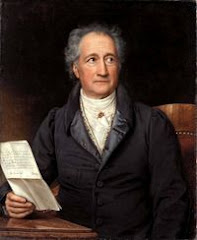The new enlightenment ideas of 'enlightened' individuals of the 17th and 18th century buergertum have greatly influenced the way of life in our modern capitalistic society. Their concepts for the structural modification of the medieval feudal society, in which the upper class belonged to those who received the privelages via birth rights and there was no possibility for a peasant to ever become a noble or really acquire money, into a class system of the 'educated' and 'uneducated,' where individuals have the ability to move into the 'educated' class when the circumstances are right. This means that a person with the oppurtunity to gain a formal education through hard work can enlighten themselves and become a member of high society.
This concept is, to a degree, visible in immigrant America, where immigrants, arriving with nothing at the borders, can work hard to attain money and a comfortable lifestyle. This American Dream lacks any requirement for a wholesome education, though. The early mercantile buergers wanted to attain the political power and cultural influence that knights were given simply through natal inheritance. Now, saying all this: that everyone is capable of improving their social rank through hard work and decent educations, the ideal system had rigidty to it; it was, as with all ideal concepts, flawed. As the cliche goes: easier said than done.
Although, there were chances for people to move up, these oppurtunity were made difficult. The structure in a capilist society is structured so that one born in a certain social class is more likely to remain in that class, rather than to improve. The encouragement of this class fixity was originally started by the business owner class, which coincidentally was the buergertum because they had finances to feed the industrial need. They exponentially increased their money through these investments and wanted to keep their profits. They did so by paying the least amount of wages to workers that was possible. David Ricardo, a great British economist created the 'Iron Law of Wages,' where workers only needed the amount of money required to merely survive. In this way, owners paid workers just enough to eat and be sheltered, but no more. These factory workers, also coincidentally, were former peasant farmers. This early industrial model looks very similar to medieval feudalism, with the owners representing the nobility, that transfer wealth and power to their children and keep it within the same class. The peasant class was simply stuck in arguably worse conditions than when they were farming.
-Alex
Friday, February 29, 2008
Subscribe to:
Post Comments (Atom)







.jpeg)


No comments:
Post a Comment